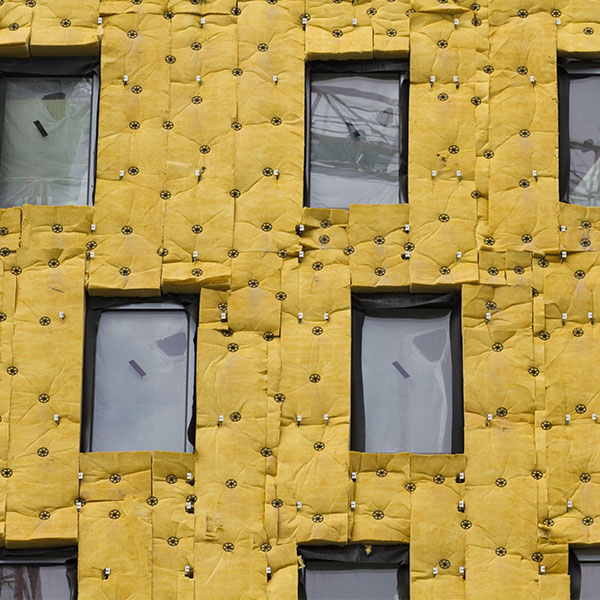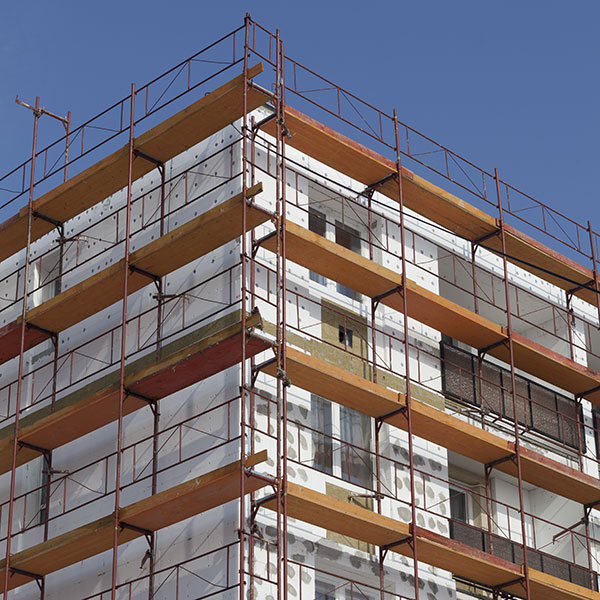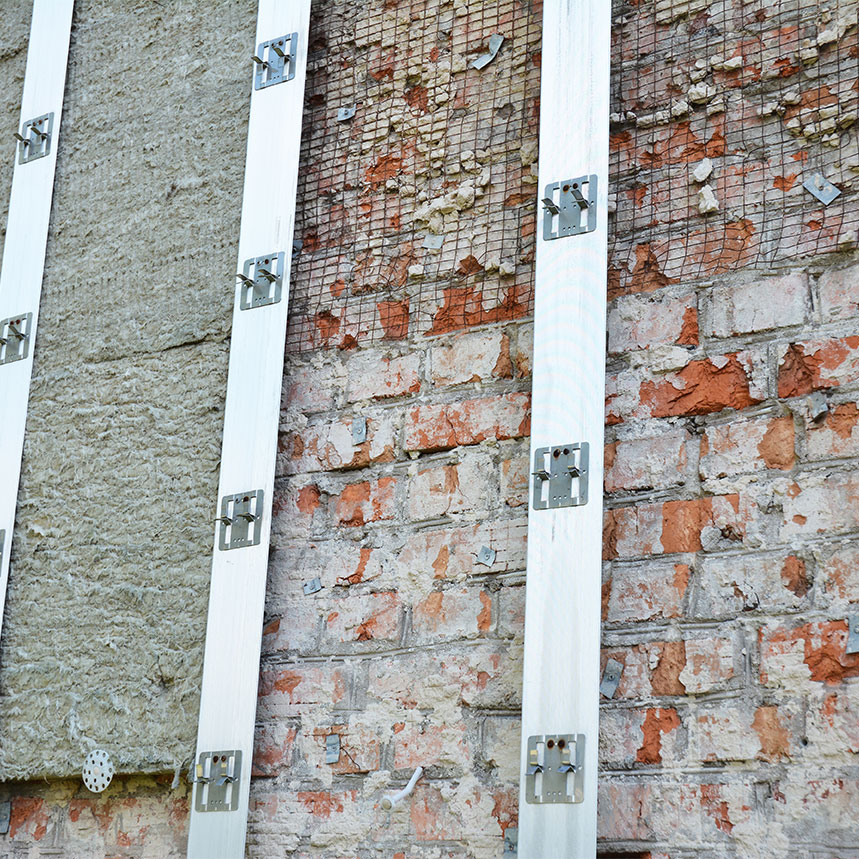The quick way to find a local External Wall Insulation specialist
One of the most cost-effective home improvements that not only adds value but keeps your house cosy in winter, is external wall insulation. We have an abundance of skilled external wall insulation companies on our books. Post your job for free and receive up to three quotes from our external wall insulation specialists.
Post your job for free. Read reviews, get quotes, and see tips on hiring the right person.
Browse External Wall Insulation specialists
Take a look at our External Wall Insulation specialists profiles, read reviews and request quotes directly.
External wall insulation installers – Rated People
External wall insulation is a cost-effective home improvement for houses with solid walls.
According to the National Insulation Association, a massive 45% of heat escapes through the walls of houses with uninsulated solid walls. External wall insulation keeps your home warmer, adds value to your house and reduces energy bills, making it a worthwhile investment.
Installation involves applying an insulation material and weatherproof cladding to the exterior walls. The cladding that goes over the top comes in a variety of different finishes, including smooth, textured, tiled, painted or panelled.
This means you can choose a style that complements your house.
Are my walls solid or cavity?
External wall insulation is the best insulation option for older properties with solid walls. Newer properties generally have cavity walls that are best insulated with cavity wall insulation instead. There are a few simple checks you can make to find out which type of wall you have.
Age – properties built before the 1920s usually have solid walls, while properties built after this time have cavity walls.
Brick pattern – if you’re not sure on your property’s wall type, the brick pattern on exterior walls often gives it away. Cavity walls are usually built using bricks of a uniform size, while solid walls have an alternating pattern of full and half-length bricks.
Thickness – cavity walls are thicker than solid walls. To check how thick your walls are, open your front or back door and measure the wall through the door opening. Cavity walls usually measure over 30cm, while anything less is usually a solid wall.
Internal wall insulation versus external wall insulation
Solid walls can either be insulated internally or externally. Budget, severity of heat loss and the condition of your walls will determine whether internal or external insulation is most suitable for your house.
Exterior wall insulation cost is more expensive, but it will improve your home’s appearance and is generally less disruptive to install. Some redecoration will be required after internal insulation has been installed.
If you’re not sure which type of insulation is right for you, external insulation companies will be able to help you decide.

What are the benefits of external wall insulation?
- Reduces heat loss through walls.
- Reduces energy bills.
- Reduces internal condensation.
- Protects walls to improve longevity.
- Improves weatherproofing.
- Improves sound resistance.
- Improves appearance of your home’s exterior (curb appeal).
- Environmentally friendly.
Moisture penetration
While external wall insulation stops moisture penetrating your exterior walls, it can’t prevent moisture entering your wall internally. It does, however, reduce damaging internal condensation by warming the wall. This causes internal moisture to condense closer to the cold external air rather than on the internal surface.
How long will the job take?
On average, it takes 3 to 6 weeks to complete the work depending on the size of the house. It can take longer if your walls need any repair work or if the weather is very bad.
What preparation work will be required?
Before any work starts, your tradesperson will need to prepare the area. Preparation will involve clearing the walls and the surrounding area of any obstructions. Scaffolding will then be erected for the duration of the job.
Satellite dishes, hanging baskets, creeping plants and anything else attached to the walls need to be removed. Check with your tradesperson what preparation work is required and who’ll be carrying it out.
How much does external wall insulation cost?
Exterior wall insulation can cost anything in the region of £8,000 to £22,000. The price of the job depends on the size of your property and the condition of your walls.
In some cases, it may be possible to get a grant to help with the cost of external wall insulation as part of the Energy Company Obligation (ECO) scheme. Speak to your energy company to find out if you are eligible or contact the Energy Saving Trust for more details.
How much money will it save me?
While solid walls are more expensive to insulate than cavity walls, the savings that can be achieved on energy bills with this type of insulation are bigger.
Listed below are the average annual savings on energy bills after the installation of external wall insulation according to the Energy Saving Trust.
| Detached | £425 |
| Semi-detached | £255 |
| Mid-terrace | £160 |
| Bungalow | £175 |
| Flat | £120 |
The qualifications your tradesperson needs
Although there are no formal qualifications required to do the job, there are several courses and certificates available to achieve official recognition. These include a City and Guilds NVQ certificate or diploma in Insulation and Building Treatments, as well as short courses offered by product manufacturers.
Planning permission for external wall insulation
The finish you choose for the rendering will determine if your job requires planning permission. If the finish alters the appearance of the exterior of your house, you’re likely to need planning permission first.
If you live in a listed building or within a conservation area you will need to speak with your local authority. You also need to ensure all work complies with solid wall building regulations.
Insurance for external wall insulators
You should expect all reputable tradespeople to have public liability insurance as standard. This covers any accidental damage that may be caused to your property during the work.
Questions you should ask your external wall insulator
- Do they have any qualifications or certificates?
- Are they a member of the Insulated Render and Cladding Association (INCA)?
- Which decorative finishes do they offer?
- Will they install a vapour barrier to protect from moisture in the wall?
- Will they use full scaffolding?
- How long do they estimate the job will take?
- What preparation work will be required before installation?
- Is the work guaranteed and what are the details of the guarantee?
- Do they have public liability insurance?
Get our app for homeowners
- Send messages and get notifications from tradespeople
- Add photos to get more accurate quotes
- View tradespeople's profiles